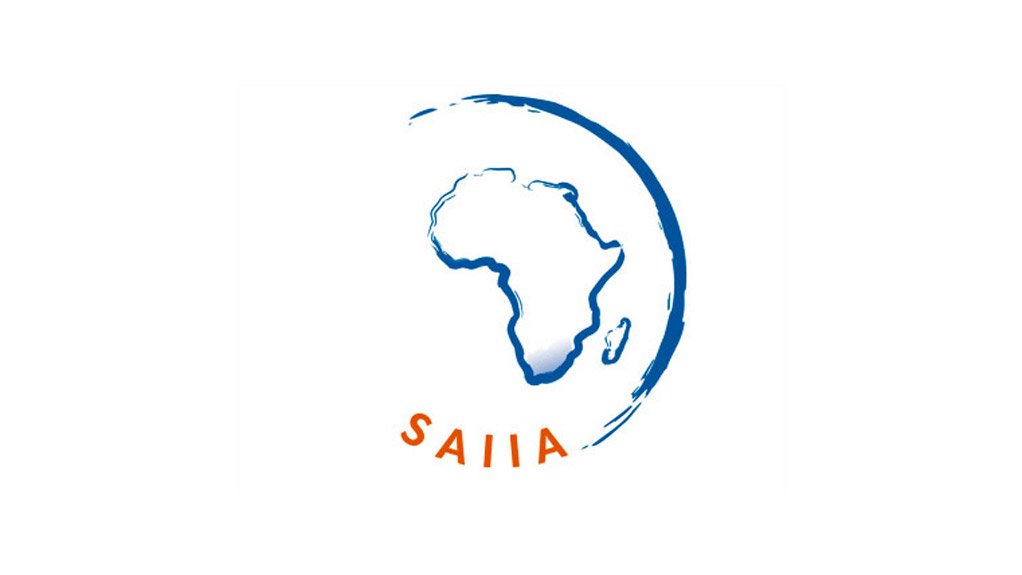In the midst of a global commodity price bust and a rapid Chinese economic slowdown, South African mining companies are struggling to keep shafts operational. Exacerbating this difficulty is a generally strained relationship between mining firms and the government over mineral rights.
The most recent episode involves Aquila Resources, which will seek judicial review if a resolution with the Department of Mineral Resources fails to materialise. Mineral Resources Minister Ngoako Ramatlhodi informed the company last month that its mining right application for the Gravenhage manganese deposit had been denied. Its prospecting licence had also been rescinded and granted instead to the Pan African Minerals and Development Company, in which the South African state’s mining company has a stake.
This is a predictable problem when the state is both player and referee in the mining game. It can no longer be an independent and objective allocator of mineral rights. Combined with a lack of clarity in the latest amendments to the Mineral and Petroleum Resources Development Amendment Bill over how rights applications will be processed, this does not bode well for generating investor confidence in the industry.
The minister also recently suspended – and then promptly reinstated – Glencore’s Optimum Colliery mining licence. It is conceivable that the government may have viewed the suspension of Optimum’s licence as a deterrent to other companies considering retrenchments. In the long run, however, it is difficult to see how the threat of licence suspension will preserve jobs, as it generates uncertainty for investors. Without investment, there can be no production. Without production, there can be no job creation. The Aquila dispute fuels this general uncertainty even further. Reallocating a prospecting licence to a government-favoured entity without due process being followed is sub-optimal practice.
The government does however recognise that the mining industry is in crisis. Since 2008, on average, commodity prices have been declining. Gold, platinum, iron ore and coal – South Africa’s major exports – have all reached prices that render average production marginal. New mines with easily accessible ore bodies, where the marginal cost of production is lower than the marginal price received, will likely survive the storm (all else being equal). The majority of mines, older and with rapidly escalating costs of production will likely shut down. Data from the Council for Conciliation, Mediation and Arbitration show that between April and June this year, 23 321 employees across the economy were notified that they were likely to be retrenched in the coming months. More than half of these jobs (11 901) are in the mining sector.
This is the stark reality, and it cannot easily be reversed. Its devastating effects on employment can only be minimised if unions, firms, the Department of Mineral Resources and the Minerals Ministry devise a stable roadmap for the future. The Framework for a Sustainable Mining Industry (FASMI), drawn up by former deputy president Kgalema Motlanthe in 2012, seems to have dissipated into the ether. Crisis talks last month seemed to yield a commitment from all parties to try and save jobs, but the government’s credibility may be undermined by news of its Aquila licence decision.
Revoking a mining licence should not be done in haste, especially not in a country that remains so heavily dependent on the mining industry for employment. Suspending a licence is, technically, an acceptable end-game move in principle. However, given its seriousness, the exact regulations that have been flouted should be made clear to the public, so as to generate trust that due diligence has in fact been followed. Similarly, the process by which prospecting and mining rights are allocated needs to be transparent to avoid the appearance of arbitrariness. Without high levels of trust between the state and firms, the latter perceive that their security of tenure is under threat, which disincentivises both new exploration and production investment.
There is a better way. Few dispute the importance of meeting social obligations, and of endowing governments with the power to wield a stick when absolutely necessary, but achieving compliance in this respect should be a function of partnership rather than animosity. As painful as it is, South Africa also has to accept that the commodity super-cycle is over. Input costs have soared while profits have plummeted, not to mention the added difficulty of electricity supply uncertainty. Revoking licences is therefore one of the most unhelpful things that the government could do to save jobs in a time where saving jobs is crucial to maintaining some level of social wellbeing and stability.
A better route would be to revisit FASMI, along with the National Development Plan’s call for reduced ministerial discretion, and forge a real partnership between unions, the state and mining. The mining phase of Operation Phakisa offers an opportunity in this respect. All stakeholders should make every effort to iron out their grievances in a way that does not undermine whatever mining growth potential remains.
Written by Ross Harvey, senior researcher in SAIIA's Governance of Africa’s Resources Programme. This article was first published by Business Day.
EMAIL THIS ARTICLE SAVE THIS ARTICLE
To subscribe email subscriptions@creamermedia.co.za or click here
To advertise email advertising@creamermedia.co.za or click here











